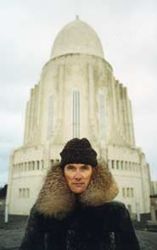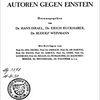Sunnudagur, 14. desember 2008
Frábær grein um Ísland í Sunday Times
Iceland: frozen assets
Six months ago, Iceland was one of the world’s richest nations. Now it’s bankrupt. AA Gill visits the first victim of the economic ice age
 In the summer of 1783, there was a volcanic eruption in the southeast of Iceland that vomited lava into the Skafta river, which boiled and ran with fire like a mythological Nordic curse. The volcanic gases were toxic and poisoned animals in their byres. Seething clouds of opaque ash plumed into the sky, blotting the sun. Everything that photosynthesised withered and died. There was a famine that killed a fifth of the population — a fifth of the people who had survived the smallpox epidemic that had previously seen off a quarter of all Icelanders.
In the summer of 1783, there was a volcanic eruption in the southeast of Iceland that vomited lava into the Skafta river, which boiled and ran with fire like a mythological Nordic curse. The volcanic gases were toxic and poisoned animals in their byres. Seething clouds of opaque ash plumed into the sky, blotting the sun. Everything that photosynthesised withered and died. There was a famine that killed a fifth of the population — a fifth of the people who had survived the smallpox epidemic that had previously seen off a quarter of all Icelanders.
So the penury of the Icelandic banking system, the collapse of its currency, the parlous implosion of its economy that relegated it from being, per capita, the second or third richest nation in the world to being the shivering Big Issue-seller of Europe, bobbing in the queue somewhere behind Albania and Moldova, is not actually the worst thing that ever happened to this island. That would have to be the two occasions when the plague wiped out more than half of everybody. Iceland didn’t have any rats, but they got Europe’s worst case of bubonic deaths without them. That’s unheard of. That’s virtually impossible — but that’s how Iceland’s luck is. It’s said you make your own luck; it’s never said that your luck also makes you.
Iceland and Icelanders have been forged on the anvil of hard knocks. The unfair thing about this latest paper calamity is that it happened just when they thought things were going so well. There were restaurants that sold food for people who weren’t hungry, there were international bars for international folk, there were boutique hotels with ambient music, and candles for smell, not illumination. Iceland was chic and cool, not just in a cold way. “This summer,” a pretty girl with a red nose and a pink scarf told me, “everybody was here on a small patch of green in front of the parliament” (which itself is smaller than Elton John’s guesthouse). “We came to cheer and drink, because Iceland had won a silver medal at the Olympics for handball,” she said. “It was huge. We’d never won a medal before.” Who came first? “Who cares? We came second. Everything was going so well.”
Reykjavik is littered with the detritus and shells of things that were once going so well and now aren’t going at all. Like the big four-wheel-drives, bought on a promise and the never-never. The biggest is a Babel-ish building site, palisaded by protective cranes, which was hoping to be a music hall, the Sydney Opera House of the far, far north. There is still a visitors’ centre, with a girl on the phone looking for a new job. There’s a toy model of what it is now unlikely to look like. You can peer through a telescope at nobody working. I watched one ancient traffic warden give a ticket to a solitary pick-up, abandoned on a patch of rutted wasteland that was going to be a smart amenity area. This was all financed by Landsbanki, one of the raiding banks that spent like mullered fishermen and borrowed like agoraphobic Vikings, who leveraged the economy into the stratosphere without a Keynesian parachute, along with every other bank in the monetarist world.
The difference here was that in every other city centre, they can run home to Daddy Government and have their gambling debts paid off. The Icelandic government is a dozen shepherds and a couple of grocers in Specsavers and M&S suits. One of the reasons they say the financial risk was so precipitous was that the entrepreneurial pool is so small. The bankers and the regulators, the ministers and the judges are all the same people — they’ve known each other all their lives, their wives and their children are friends, and nobody wanted to be the one who said no. And why should they?
It was all going so well.
Down by the container port, where the derricks droop idly, is a car pound the size of half a dozen football fields, circled by defunct iron boxes. It’s full of hundreds, perhaps thousands of cars. Behind them, across the grey fjord, black pumice crags are scarred with snow. The cars are going nowhere, dumped here at the end of the world: a great, windswept, conceptual monument to the hubris of Mammon, laughed at by black-backed gulls. These testaments to excess are now the most tasteless things to be seen in. They call the puttering Range Rovers “Game-Overs”.
Further down the shore is a speculation of modern flats, expensive, insubstantial urban penthouses that may well remain empty for ever. A young man passing by, dressed in the winter uniform of Icelandic youth — skinny jeans, T-shirt with ironic postmodern slogan, Converses and a bit of a useless scarf, hunched shoulders and a general air of thermometer-denial and hungover insouciance — stops and laughs. “Who did we ever think was going to live here? Now we look back and it seems mad. Anyone could have told them. I could have told them.”
Outside Reykjavik, there are suburban developments for new commuter suburbs. They put in roads and street lights but the houses have yet to be built, or stand blankly unfinished. Outside, a little girl plays in the gloaming with her sheepdog. It’s a strangely surreal image: the silent cul-de-sac, like a model of the middle-American ’burbs, with just this child, a character snatched from an Edward Hopper painting.
Further along a road called End of the World we find a self-employed electrician. His company is called “Why Not Me”. When he has finished here, he is going abroad to find work — “Poland, probably” — and he smiles a crooked Icelandic smile. It’s a joke. There used to be lots of Poles here doing the dirty bits of the economic soft times. Now they have all gone home because the Icelandic krona has become shrapnel in the explosion of free markets.
Kaupthing, Landsbanki and Glitnir sound like elf characters from The Lord of the Rings, and there is an element of fairy-tale comeuppance to these three backwater banks. Only when you’re shown their headquarters do you realise how bizarre and unworldly their success was. They look like small city shops, branches of Bradford & Bingley. One of them was run from the floor above a fast-food restaurant. As with every great disaster the world over, the moment after it happened, the scales fell from every eye and all could see that it was inevitable. Where were the white-collar jobs for the commute back from the brave new garden suburbs to come from? Where was the black-tie audience for the opera? How could Iceland have the sharpest cashiers in the world? How could this nation sustain just two main industries: cod-fishing and international high finance? And, most importantly, most damningly, how did they ever think they could buck the Icelandic luck? Now everyone looks back at the road they’ve just travelled and wonders why none of them mentioned it was made of marzipan and Rolexes.
The act that tipped the last Icelandic bank off the edge of the cliff was delivered by Gordon Brown, who froze Icelandic assets in the UK using our new, gleaming anti-terrorist legislation. The Icelanders mind that — they’re hurt by that. You see, they always imagined they were one of us, not one of them. But Gordon needed to do something cheap to look competent, so he beat up a smaller kid. Not just a bit of a slap, but a vicious kicking. Showing off to impress the girls. He would never have started it if the banks had been German or French, or even from Liechtenstein.
The Icelanders mind about the terrorist thing. They don’t even have an army. They barely have a jail: it’s more of a drop-in centre. The police drive you home if you’re too drunk. This is the most liberal, reasonable, hard-working, decent, moral, amusing and well-educated people on the Continent; a nation who are temperamentally the furthest away from terrorism. Remember that about Brown — the man who said he wanted to prevent the export of terrorism. Remember it when he puts on his Save the World, Mr International Harmony hat. He put an ally into intensive care for the sake of a headline and three points in a weekend poll. Perhaps he didn’t notice. Perhaps he was looking through his glass eye.
Let’s just be clear about what Iceland really is. Most people think it’s the size of the Isle of Wight with the population of, say, Holland. It’s bigger than Hungary, bigger than South Korea, which has a population of 50m. There are just over 300,000 people in Iceland. So that’s a country the size of Portugal with the population of Bradford. Those are Mr Brown’s terrorists.
Iceland imagined that Europe and America would help it out. After all, it has always helped us out. Keflavik was a vital Nato base between the east coast of America and the west coast of Europe in the cold war. We were all in this together. Except, as they were to learn, we were only in it together if we were fat enough to buy ourselves the solution. The Russians bailed Iceland out: Reykjavik could be a very useful place to launder money and cock a snook. And the Faroe Islands, bless them, population 48,000, lent £34m. Everyone in Iceland signed a thank-you card. And finally the IMF came up with a rescue package.
Oh, but Gordon Brown — or you and me, as he is known abroad — leant on that so that fat, stupid English councils could get their greedy noses in the trough before Icelandic children got a banana. That’s not hyperbole — because they have so little foreign currency, imports are graded into three categories: essential, necessary and luxury. Exotic fruit is a luxury, but then in Iceland a tree is an oddity. If you want fruit, eat fish liver or a puffin.
Sitting in the happy, healthy organic cafes of downtown Reykjavik where the hippie kids blog (there are more bloggers here than anywhere else) and girls with blond babies laugh at each other, you wouldn’t know this was an economically dead country walking. In the 101, a New York-brittle boutique hotel built and patronised by the bankers and speculators, you couldn’t tell that nobody here has a pension or savings. The groups of svelte and confident girls flick their hair, neck cocktails and make blatant passes at the men with face hair like mangy seals who are downing beer and shots. Icelanders react to bad news the way they always have. It’s the same way they react to good news: they get hammered. Properly Valhallaed. The bars and clubs are full, the booze is expensive, and they toast each other with a grim irony. There are still redundancy payments around — they’re cash-happy. The crunch will come in the New Year when the brass handshakes run out.
People may be hurt by Brown and the British, and embarrassed by the gluttony and ineptitude of their own businessmen, and they are angry with their government. They want an election and someone to be Icelandic enough to grasp the blame and responsibility. But about themselves and the future they are remarkably, Nordically sanguine. A very direct woman in a bar said: “All that money, all the things and the stuff, it’s very un-Icelandic. The wanting, the conspicuous consumption, the avarice and ambition, the pathetic jealousy, that isn’t us. A great weight has been lifted now the money and the desires are gone. We can get back to being who we are.”
Who the Icelandics are is one of the great enigmas of northern Europe. They speak an ancient, pure Scandinavian. They are horrifically hard-drinking, maudlin and prone to flights of dark nihilism and lengthy bitterness. They are taciturn fishermen and farmers; stoical, practical and moral. They have published more books and produced more chess grandmasters per head than anywhere else. They read more and write more, they sing and play instruments. Everyone here can change a tyre, strip an engine, ride a horse, sail a boat, dress a sheep and cure a salmon. They have grown through a hard Calvinism to a moral atheism while maintaining an open mind about elves.
Roads are moved to avoid the homes of the hidden people: elves have to be asked permission before new buildings are built, and country folk see them regularly, not always when drunk. The fairy folk who share this empty island with the humans are Adam’s other children: the unwanted, cloaked by God in invisibility.
There is also a deep handmade seam of nostalgia that links all Icelanders. Families are going back to the old ways — to buying the autumn-culled sheep. Traditionally you get an odd number, and the whole family comes to make slatur, a sort of fatty haggis sausage that is boiled and tastes like warm, meaty fat. The warming cabinets of convenience stores offer vacuum-packed, ready-cooked, laterally sliced halves of sheep’s heads, which I’m told are selling like boil-in-the-bag halves of sheep’s heads. The women are going back to knitting rough, tarry wool into the mentally geometric jerseys that feel like wearing St Francis’s wife-beater. A big second-hand shop has become a smart and fashionable place to shop, though not for anything that is fashionable or smart. The contents are commendably and pathetically meagre and practical. The boxes of second-hand records hum the contradictions of Iceland’s long winter. There are lots of romantic choral works, home-grown folk songs from men in third-degree knitting, and heavy metal and prog rock. On the second-hand-magazine rack are piles of practical outdoor-activity manuals and a copy of Hello! commemorating the death of Princess Diana.
The designer interior-decorating emporiums that sprung up in the last five years now stand empty and sulky, like party-dressed girls with panda eyes waiting at morning-after bus stops. There’s a large new mall on the outskirts of Reykjavik, neon-bright and desolate. The girl who takes me there says, “A mall — nothing could be less Icelandic than a mall. All this will go,” and waves a mittened fist at the prefab warehouses, the new homes and the loneliness of the long-distance car park with its flapping flagpoles, “and we can stop pretending to be little Americans, or Danes, or British.”
There is something invigorating about Iceland at this moment — like being with people waking from a dream. It’s exciting and instructive. It’s a patronising cliché to say that people have wealth beyond mere riches. Nobody is better off for being poor. But this tight-knit, undemonstrative community at the edge of the world has been woven together from sterner stuff than I think we could muster. “We’ll be all right — we’re not going to starve,” a shopkeeper told me. “We have fish and rye and mutton and barley. We can grow the odd tomato in a polytunnel. We have skills — useful skills, practical skills. And, you know, they’re under-heating the pavement outside my shop so it won’t freeze in the winter. All our energy is thermal and free. So maybe I can’t have a new mobile phone, but when I get drunk and fall over, the pavement will keep me warm.”
From the 12th century a miraculous thing happened here: one of those eruptions of creation that defy the laws of culture and make civilisations briefly pyrotechnic. A series of books were written to illuminate the dark: sagas, secular stories of life, of mystery and mythology, of lords and farmers, politics and revenge, love affairs and voyages. Stories that were the first to be written as narratives with parabolas of plot and evolving characters. Nobody anywhere else had ever done that before. It is the birth of literature. They are as inexplicably, breathlessly awe-inspiring as the conception of the Renaissance a hundred years later. It was the Icelandic sagas that inspired Tolkien to write The Lord of the Rings, because he wanted Britain to retrospectively have a creation myth. Nobody knows what inspired Iceland or what precipitated this volcano of clear, collected genius. It was just Iceland: out there, sparse and treeless.
In the howling gale where the water boils and the volcanoes rumble, and the earthquakes make the ground liquid, and black shores crash and smoke, it is a landscape that fills you with either dread or stories. And it’s shared with the hidden people and the heroic solitude, a brooding presence to measure your height against.
Iceland has grasped this weakness, this greed, this business with money, and turned its back to take an unsentimental look at itself.
They will be all right. This is the nation that made the first democratic parliament — the Althing — that fought the Royal Navy to make the first sustainable fishery in the northern hemisphere, produced three Miss Worlds and one Nobel literature laureate — then came second at handball. You are measured by how squarely you stand against bad luck. Not how you squander good luck.
---
Komment um greinina:
Your best ever Adrian. It's a pity it is about such tragedy. But as they say..."We'll be Ok" I'm sure they will.
Geoff, birmingham, uk
Another superb article from one of my favourite writers.
miko, Singapore,
A superb article, written on two levels. It starts off rough, almost on purpose, and ends as one of the best written articles I've read in recent years. I've never been to Iceland, but surely I want to go now, if only to meet some of the folks who have survived more than most nations ever could.
Stephen Churchill, Brockton, USA
I have never read a more elegantly written article in my life.
Michael Fernandes, Chapel Hill, USA
A gifted scribe indeed, writing about a place in need of gifts. Yet which also evidences the consequences of seeking easy wealth.
Prov 11:28) "He that trusteth in his riches shall fall: but the righteous shall flourish as a branch."
daniel hamilton, Chelsea, United States
Exceptionally good. And true to life of all the Icelanders I have met in several countries.
Austin Scott, Chicago,
I've been to Iceland many times over the years, organizing tourist trips centering on the Medieval sagas. But best of all I have made friends there, and the integrity and the courage of Icelanders will take them through this. A. A. Gill did a fantastic job on capturing the spirit of Iceland.
Bob Wilhelm, Hagerstown, USA
This is definitely one of the best articles I have ever read on this website.
Kunal Chakraborty, Cambridge, UK
This article is staggeringly well written. Iceland is a fascinating place, made all the more intriguing by A.A. Gill's evocative writing. The Icelandic attitude is apt: while nobody enjoys being poor, adversity can be a reinvigorating test of character - e.g. late 70s Britain, early 90s Australia.
Luke Critchley, Toowoomba, Australia
Sjá hér:
http://business.timesonline.co.uk/tol/business/economics/article5329762.ece

|
Brown sparkaði í Íslendinga |
| Tilkynna um óviðeigandi tengingu við frétt | |
Meginflokkur: Bækur | Aukaflokkar: Menning og listir, Stjórnmál og samfélag, Viðskipti og fjármál | Breytt s.d. kl. 15:02 | Facebook
Um bloggið
Ginnungagap
Ýmislegt
Loftslag
Teljari
Álverð
Sólin í dag:
(Smella á mynd)
.
Olíuverðið í dag:
Nýjustu færslur
- Kínverskur loftbelgur yfir Ameríku, og Amerískur belgur yfir ...
- Vísindavefurinn: Getum við seinkað klukkunni á Íslandi og fen...
- Sjálfstæðisflokkurinn með tæplega 19% meira fylgi en Samfylki...
- Bjarni Sigurðsson harmonikkusnillingur frá Geysi. Fáein orð...
- Hvers vegna valdi Apple ekki Ísland fyrir gagnaver...?
Heimsóknir
Flettingar
- Í dag (9.10.): 4
- Sl. sólarhring: 19
- Sl. viku: 169
- Frá upphafi: 769329
Annað
- Innlit í dag: 4
- Innlit sl. viku: 160
- Gestir í dag: 4
- IP-tölur í dag: 4
Uppfært á 3 mín. fresti.
Skýringar
Tenglar
Tenglar
Ýmsar vefsíður
- Efnisyfirlit pistla
- Lofthiti - Sjávarstaða - Hafís - Sólvirkni... Beintengdir ferlar
- Club du Soleil Greinar um samaspil sólar og veðurfars
- Stjörnufræðivefurinn
- Astronomy Picture of the Day
- Climate4you
- Watts Up With That?
- World Climate Report
- CO2 Science
- The Reference Frame
- Climate-Audit
- ICECAP
- The Air Went
- Science Sceptical Blog
- Roy Spencer
- Friends of Sience
- Prometheus
- Öldur aldanna. Sjaldan er ein báran stök - einnig í veðurfari? (2003) Vefsíða ÁHB
- Gróðurhúsaáhrif eða eðlilegar sveiflur í virkni sólar? (Grein í Lesbók Mbl. 20. júní 1998) Höfundur Ágúst H. Bjarnason
- Er jörðin að hitna?-Ekki er allt sem sýnist (1998) Vefsíða ÁHB
Uppskriftir
Ýmsar mataruppskriftir
Myndaalbúm
Bloggvinir
-
 majab
majab
-
 ragu
ragu
-
 amadeus
amadeus
-
 andres08
andres08
-
 apalsson
apalsson
-
 asabjorg
asabjorg
-
 askja
askja
-
 astromix
astromix
-
 baldher
baldher
-
 biggibraga
biggibraga
-
 bjarkib
bjarkib
-
 bjarnijonsson
bjarnijonsson
-
 bjarnimax
bjarnimax
-
 bjorn-geir
bjorn-geir
-
 blindur
blindur
-
 bofs
bofs
-
 brandarar
brandarar
-
 daliaa
daliaa
-
 darwin
darwin
-
 duddi9
duddi9
-
 ea
ea
-
 egillsv
egillsv
-
 einari
einari
-
 einarstrand
einarstrand
-
 elinora
elinora
-
 elvira
elvira
-
 emilhannes
emilhannes
-
 esv
esv
-
 eyjapeyji
eyjapeyji
-
 fhg
fhg
-
 finder
finder
-
 finnur
finnur
-
 fjarki
fjarki
-
 flinston
flinston
-
 frisk
frisk
-
 gattin
gattin
-
 geiragustsson
geiragustsson
-
 gillimann
gillimann
-
 gretaro
gretaro
-
 gthg
gthg
-
 gudmbjo
gudmbjo
-
 gudni-is
gudni-is
-
 gummibraga
gummibraga
-
 gun
gun
-
 gutti
gutti
-
 haddi9001
haddi9001
-
 halldorjonsson
halldorjonsson
-
 halldors
halldors
-
 hlini
hlini
-
 hof
hof
-
 hordurhalldorsson
hordurhalldorsson
-
 hreinsamviska
hreinsamviska
-
 hronnsig
hronnsig
-
 hugdettan
hugdettan
-
 icekeiko
icekeiko
-
 ingibjorgelsa
ingibjorgelsa
-
 jakobbjornsson
jakobbjornsson
-
 jakobk
jakobk
-
 johannesthor
johannesthor
-
 johnnyboy99
johnnyboy99
-
 jonaa
jonaa
-
 jonasgunnar
jonasgunnar
-
 jonmagnusson
jonmagnusson
-
 jonpallv
jonpallv
-
 jonthorolafsson
jonthorolafsson
-
 juliusvalsson
juliusvalsson
-
 karljg
karljg
-
 katrinsnaeholm
katrinsnaeholm
-
 kikka
kikka
-
 kje
kje
-
 klarak
klarak
-
 kolbrunb
kolbrunb
-
 krissiblo
krissiblo
-
 ksh
ksh
-
 kt
kt
-
 lehamzdr
lehamzdr
-
 liljabolla
liljabolla
-
 lillagud
lillagud
-
 lindalea
lindalea
-
 lucas
lucas
-
 maeglika
maeglika
-
 maggij
maggij
-
 maggiraggi
maggiraggi
-
 marinomm
marinomm
-
 martasmarta
martasmarta
-
 marzibil
marzibil
-
 mberg
mberg
-
 midborg
midborg
-
 minos
minos
-
 morgunbladid
morgunbladid
-
 mosi
mosi
-
 mullis
mullis
-
 naflaskodun
naflaskodun
-
 nimbus
nimbus
-
 nosejob
nosejob
-
 omarbjarki
omarbjarki
-
 ormurormur
ormurormur
-
 palmig
palmig
-
 perlaoghvolparnir
perlaoghvolparnir
-
 peturmikli
peturmikli
-
 photo
photo
-
 possi
possi
-
 prakkarinn
prakkarinn
-
 raggibjarna
raggibjarna
-
 rattati
rattati
-
 ravenyonaz
ravenyonaz
-
 redlion
redlion
-
 rs1600
rs1600
-
 rynir
rynir
-
 saemi7
saemi7
-
 sesseljamaria
sesseljamaria
-
 sigfus
sigfus
-
 sigurgeirorri
sigurgeirorri
-
 sjalfstaedi
sjalfstaedi
-
 sjerasigvaldi
sjerasigvaldi
-
 skari60
skari60
-
 skulablogg
skulablogg
-
 sleggjudomarinn
sleggjudomarinn
-
 stebbix
stebbix
-
 steinibriem
steinibriem
-
 steinnhaf
steinnhaf
-
 stinajohanns
stinajohanns
-
 stjornuskodun
stjornuskodun
-
 storibjor
storibjor
-
 straitjacket
straitjacket
-
 summi
summi
-
 tannibowie
tannibowie
-
 thil
thil
-
 thjodarskutan
thjodarskutan
-
 throsturg
throsturg
-
 toro
toro
-
 tryggvigunnarhansen
tryggvigunnarhansen
-
 valdimarjohannesson
valdimarjohannesson
-
 valdinn
valdinn
-
 vefritid
vefritid
-
 vey
vey
-
 vidhorf
vidhorf
-
 vig
vig
-
 visindin
visindin
-
 vulkan
vulkan
-
 kristjan9
kristjan9
-
 arkimedes
arkimedes
-
 kliddi
kliddi
-
 eliasbe
eliasbe
Eldri færslur
- Febrúar 2023
- Janúar 2019
- Maí 2018
- Júlí 2017
- Maí 2017
- Febrúar 2017
- Janúar 2017
- Nóvember 2016
- Október 2016
- September 2016
- Júlí 2016
- Apríl 2016
- Mars 2016
- Febrúar 2016
- Janúar 2016
- Desember 2015
- Nóvember 2015
- Október 2015
- Ágúst 2015
- Júní 2015
- Maí 2015
- Apríl 2015
- Mars 2015
- Febrúar 2015
- Janúar 2015
- Desember 2014
- Nóvember 2014
- Október 2014
- September 2014
- Ágúst 2014
- Júlí 2014
- Júní 2014
- Maí 2014
- Apríl 2014
- Mars 2014
- Febrúar 2014
- Janúar 2014
- Desember 2013
- Nóvember 2013
- Október 2013
- September 2013
- Ágúst 2013
- Júlí 2013
- Júní 2013
- Maí 2013
- Apríl 2013
- Mars 2013
- Febrúar 2013
- Janúar 2013
- Desember 2012
- Nóvember 2012
- September 2012
- Ágúst 2012
- Júlí 2012
- Júní 2012
- Maí 2012
- Apríl 2012
- Mars 2012
- Febrúar 2012
- Janúar 2012
- Desember 2011
- Nóvember 2011
- Október 2011
- September 2011
- Ágúst 2011
- Júlí 2011
- Júní 2011
- Apríl 2011
- Mars 2011
- Febrúar 2011
- Janúar 2011
- Desember 2010
- Nóvember 2010
- Október 2010
- September 2010
- Ágúst 2010
- Júlí 2010
- Júní 2010
- Maí 2010
- Apríl 2010
- Mars 2010
- Febrúar 2010
- Janúar 2010
- Desember 2009
- Nóvember 2009
- Október 2009
- September 2009
- Ágúst 2009
- Júlí 2009
- Júní 2009
- Maí 2009
- Apríl 2009
- Mars 2009
- Febrúar 2009
- Janúar 2009
- Desember 2008
- Nóvember 2008
- Október 2008
- September 2008
- Ágúst 2008
- Júlí 2008
- Júní 2008
- Maí 2008
- Apríl 2008
- Mars 2008
- Febrúar 2008
- Janúar 2008
- Desember 2007
- Nóvember 2007
- Október 2007
- September 2007
- Ágúst 2007
- Júlí 2007
- Júní 2007
- Apríl 2007
- Mars 2007
- Febrúar 2007
- Janúar 2007
- Desember 2006
- Nóvember 2006
- Október 2006
- September 2006
Færsluflokkar
- Bloggar
- Bækur
- Dægurmál
- Evrópumál
- Ferðalög
- Fjármál
- Fjölmiðlar
- Heilbrigðismál
- Heimspeki
- Íþróttir
- Kjaramál
- Kvikmyndir
- Lífstíll
- Ljóð
- Löggæsla
- Mannréttindi
- Matur og drykkur
- Menning og listir
- Menntun og skóli
- Samgöngur
- Sjónvarp
- Spaugilegt
- Spil og leikir
- Stjórnmál og samfélag
- Sveitarstjórnarkosningar
- Tónlist
- Trúmál
- Trúmál og siðferði
- Tölvur og tækni
- Umhverfismál
- Utanríkismál/alþjóðamál
- Vefurinn
- Viðskipti og fjármál
- Vinir og fjölskylda
- Vísindi og fræði







Athugasemdir
Sæll Ágúst,
Þetta er frábær grein og takk fyrir að birta mér hana í óleyfi.
kveðja Rafn.
Rafn Haraldur Sigurðsson (IP-tala skráð) 14.12.2008 kl. 10:13
Já, góð grein.
Guðjón Atlason (IP-tala skráð) 14.12.2008 kl. 10:31
Frábær grein eða bíddu........ " vorum við rík ef svo var afhverju eru hörmungar að dinja á almennigni og hver var ríkur !!!! Seðlabankinn.... Jón Ásgeir ....... KB banki.... já auðvitað við vorum með innlánsfé og gríðarlega veltu bankana.
by the way ég heyrði í Jón Ásgeir og hann sagði heRÍÐykkur seinna og hló ætli að hann hafi meint heyri í ykkur seinna !!!!!........
já við vorum stærstust og bestust .....réttlætingar okkar eru fásinna og hlátursefni norrænna þjóða.
Gunnar Björn Björnsson, 14.12.2008 kl. 13:37
Gunnar! Are you the only Icelander with intelligence?
Get the bastards who put you where you are. Gordon Brown did what your Government should have done long long ago.
Eirikur , 15.12.2008 kl. 02:10
Bæta við athugasemd [Innskráning]
Ekki er lengur hægt að skrifa athugasemdir við færsluna, þar sem tímamörk á athugasemdir eru liðin.